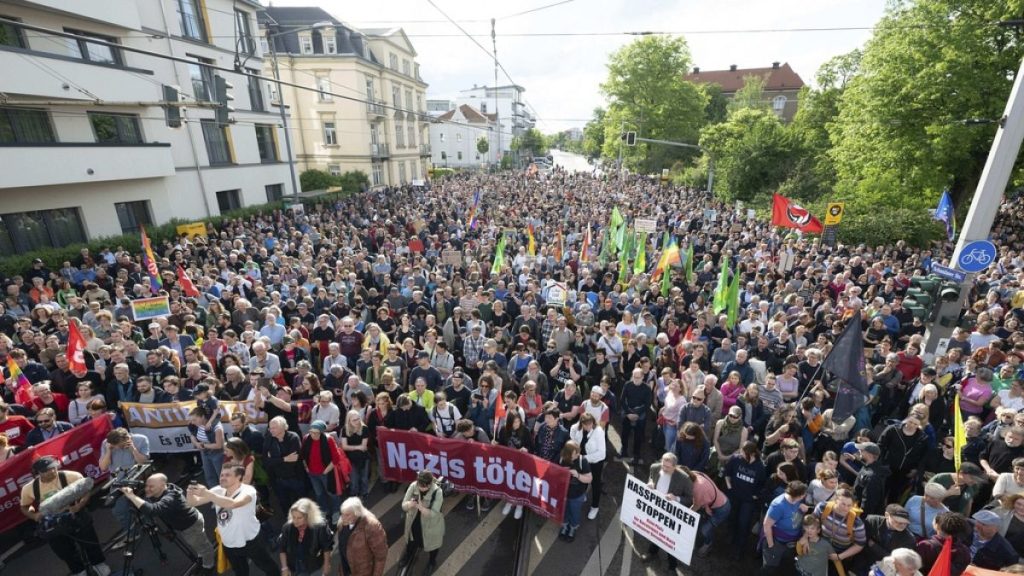German police have identified all four suspects in the attack on German Social Democrat (SPD) MEP Matthias Ecke, with one suspect turning himself in and the other three being detained. The suspects are young men aged between 17 and 18, and are believed to have also attacked a Green Party worker minutes before the assault on Ecke. Ecke, who is running for re-election in the upcoming European Elections, underwent surgery for his injuries and is expected to continue his campaign after his recovery.
Following the attack on Ecke, thousands of demonstrators gathered in Dresden and Berlin to protest right-wing extremism and political violence. Berlin’s Brandenburg Gate saw roughly 1,000 people gathering to voice their support, while around 2,000 protesters took to the streets in Dresden. Several politicians were expected to attend a spontaneous demonstration in Berlin, including Hendrik Wüst, Minister-President of North Rhine-Westphalia, in solidarity with Ecke and against political violence.
Kay Anders, Chief Inspector for the Dresden State Office of Criminal Investigation, stated that after the first suspect turned himself in, police were able to locate the other three suspects through searches of two flats. Police were able to identify the fourth suspect during the course of the evening. Ecke suffered a fractured cheekbone and eye socket, as well as hematomas to his face, from the attack on May 3. Despite his injuries, Ecke remains committed to his election campaign and is focused on his recovery.
The attack on Ecke has raised concerns about the rise of right-wing extremism and political violence in Germany. This incident has sparked outrage among the public, leading to widespread protests in solidarity with Ecke and against any form of extremism or violence. The political climate in Germany is tense, with fears of more attacks and further escalation of violence. The attack on Ecke serves as a wake-up call for authorities and politicians to address these issues and work towards a safer and more inclusive society for all.
The identification and apprehension of the four suspects in the attack on Matthias Ecke demonstrate the swift response and investigative work of the German police. The coordination and cooperation among law enforcement agencies have been crucial in ensuring that those responsible for the attack are brought to justice. The involvement of young men in such violent acts raises questions about the influence of radical ideologies and the need to address and combat extremism among youth in Germany.
As Ecke continues his recovery and his election campaign, the outpouring of support from the public and political leaders signals a united front against violence and extremism. The solidarity and determination of the demonstrators in Dresden and Berlin reflect a collective desire for a peaceful and inclusive society, free from fear and discrimination. The attack on Ecke may have been a traumatic event, but it has also shown the resilience and strength of the community in standing up against hate and intolerance.


